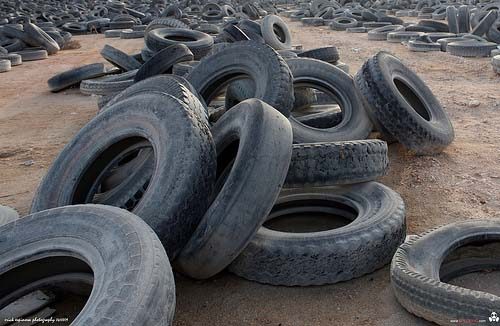
As Qatar’s population and construction projects multiply, so does the amount of garbage the country generates.
But waste is a relative term, and officials at the UNESCO office in Doha are working to ensure one man’s trash becomes another man’s treasure.
Government figures indicate that we generate a lot of junk – 20,000 tons of waste are produced daily by the construction industry alone, and in 2010, for example, some 3.5 million tons of waste were dumped in Umm Al-Afai’s landfill. UNESCO contextualizes that amount like this: If everyone had lined up to deposit their garbage on the same day, the queue would stretch from Doha to Islamabad.
In a Gulf Times op-ed, representatives Mark Sutcliffe & Dr Benno Böer continue:
Waste is defined as being unwanted, and more importantly for this article, useless. Waste is therefore an ironic term to use, because nearly everything being thrown away is invariably wanted by someone under the right conditions, and is most definitely not useless. Imagine if you will, throwing away half of your weekly shopping before you even finished using it. You would quickly come to the conclusion that you should buy half as much, and make better use of what you are buying.
The concept is no stranger to Qatar… The environment is our only life support system. With every piece of litter, we diminish the quality of the food we eat, the water we drink, and the air we breathe.
Still, recycling in Qatar remains difficult. Educational initiatives fall flat partly because bins that make sorting paper, plastic and other refuse easy are few and far between.
To tackle the problem of waste, UNESCO Doha has launched the Arab Recycling Initiative, a website that features a “waste exchange” section listing information about groups who seek – and sometimes pay for – “waste.”
Organizers say the list is far from complete, and invite contributions from volunteers.
Because “we cannot hide the waste we generate, only for our children to find it later.”
Thoughts?
Credit: Photo by Erick Espinosa







